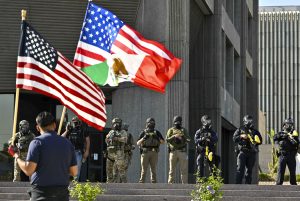The Fifth Circuit Court of Appeals, in a surprising turn of events, has revoked its earlier decision to stay the enforcement of the Corporate Transparency Act’s (CTA) reporting deadline. This reversal, documented in an order filed on December 26, 2024, effectively reinstates the District Court’s preliminary injunction against the enforcement of the January 1, 2025 deadline in the case of Texas Top Cop Shop v. Garland. This development follows a previous extension of the deadline by the Financial Crimes Enforcement Network (FinCEN), adding another layer of complexity to the ongoing legal battle surrounding the CTA.
The Fifth Circuit’s rationale for this abrupt shift hinges on the principle of maintaining the constitutional status quo pending a full review of the case’s merits. With the appeal now under the purview of the merits panel, and an expedited briefing schedule forthcoming, the court deemed it necessary to lift the stay to preserve the existing legal landscape. This ensures that the District Court’s preliminary injunction remains in effect, effectively halting enforcement of the CTA’s reporting requirements while the broader constitutional arguments are thoroughly examined. The court explicitly acknowledged the “weighty substantive arguments” presented by the parties, suggesting a recognition of the significant constitutional issues at stake.
This back-and-forth on the CTA’s implementation underscores the contentious nature of the Act, particularly regarding its perceived impact on constitutional rights. The initial preliminary injunction from the District Court, subsequently stayed by the Fifth Circuit and now reinstated, reflects the ongoing legal challenges to the CTA’s reporting requirements. This latest development throws the future of the CTA’s implementation into uncertainty, leaving reporting companies in a state of limbo as they await further clarification from the courts.
The core issue lies in the balance between the government’s interest in combating illicit finance and the potential infringement on individuals’ constitutional rights. The CTA aims to increase transparency in corporate ownership by requiring certain companies to disclose beneficial ownership information to FinCEN. Proponents argue that this increased transparency is crucial to deterring money laundering, terrorist financing, and other illicit activities. Opponents, however, contend that the CTA’s reporting requirements violate constitutional protections, potentially exposing individuals to unwarranted government scrutiny and infringing upon their privacy rights. The Fifth Circuit’s decision to vacate the stay suggests a heightened sensitivity to these constitutional concerns, prioritizing the preservation of existing rights while the merits of the case are deliberated.
The vacating of the stay signifies that, for the time being, the reporting deadline is effectively suspended in the jurisdictions covered by the Fifth Circuit. This provides temporary relief for reporting companies within this jurisdiction, but the ultimate fate of the CTA and its reporting requirements remains uncertain. The ongoing legal challenge underscores the complexity of balancing national security interests with individual liberties in the face of evolving financial crime threats. The expedited briefing schedule suggests an intention to resolve this issue promptly, but the Fifth Circuit’s ultimate decision will have significant implications for the future of the CTA.
The evolving legal landscape surrounding the CTA necessitates close monitoring by affected businesses. The Fifth Circuit’s decision to reinstate the injunction introduces a new layer of complexity to the already convoluted implementation process. Reporting companies should remain informed about future developments in this case and seek expert legal advice to navigate the changing regulatory environment. The forthcoming briefing schedule and subsequent decision from the merits panel will provide much-needed clarity on the CTA’s future and its reporting requirements, ultimately determining the trajectory of corporate transparency measures in the United States. This ongoing legal battle serves as a crucial test case for the balance between national security imperatives and constitutionally protected rights in the digital age.










